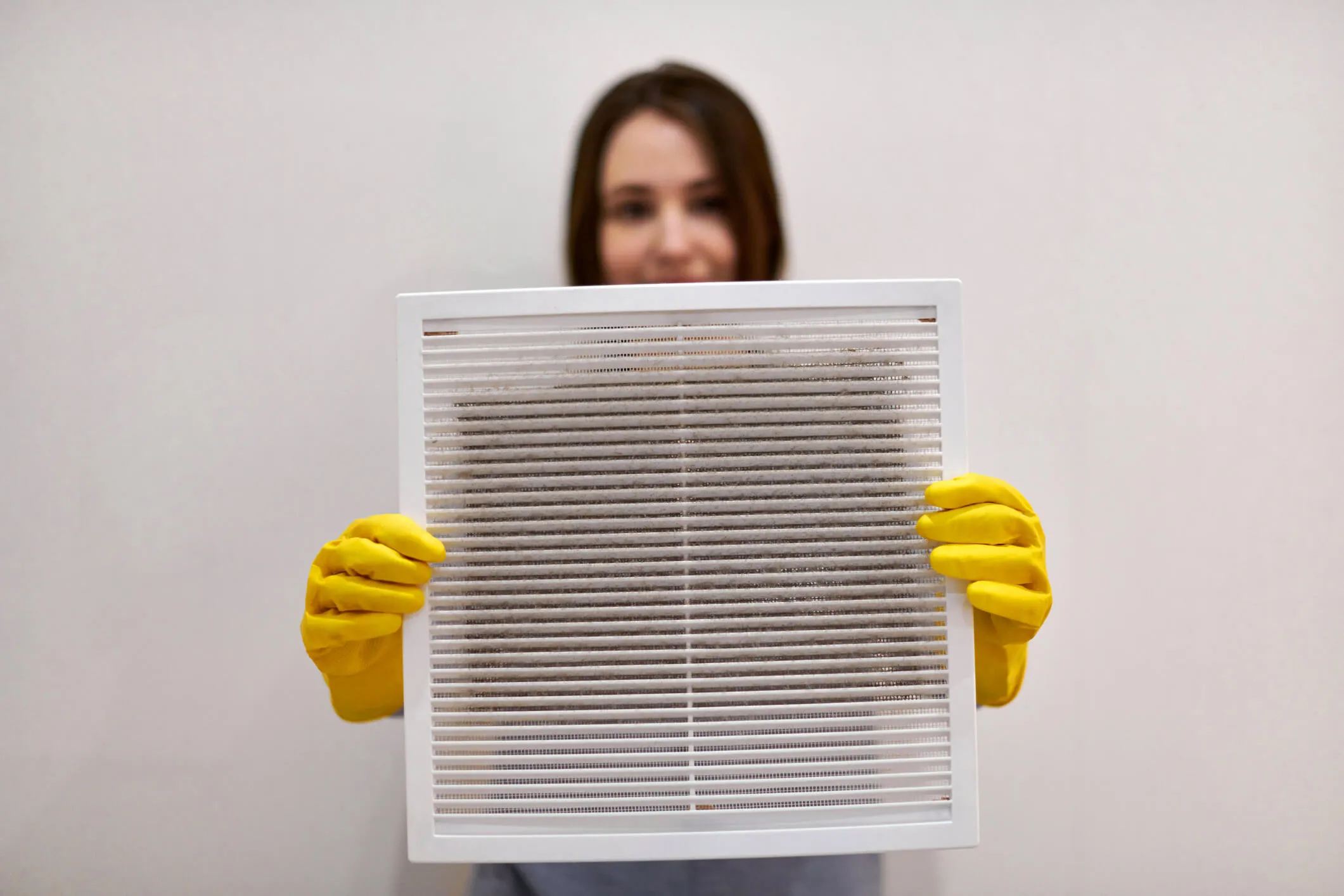Washing Your AC Air Filter and Why It’s Essential
When was the last time you inspected your air conditioner filter? As standard practice, you should inspect it each month and clean or replace it when it is dirty. We’ll share details about the different types of AC filters, why they require regular care and detailed instructions on how to wash reusable filters correctly.
The Available Types of AC Filters
Your filter choice influences indoor air quality, ventilation efficiency and whether you can clean or replace it when it becomes old. Here’s a breakdown of some common options:
- Disposable filters are commonly made from fiberglass with a paper frame. These filters are meant for short-term use and should be replaced every 1 to 3 months. They are typically low cost and simple to install but less environmentally friendly because they need to be thrown out.
- Reusable filters have stronger frame materials like aluminum or plastic. These filters can be washed and reused multiple times, and can last several years if maintenance is handled properly. They are more eco-friendly and budget friendly over their life span. On the other hand, washing them takes additional time and effort than simply replacing a disposable model.
- Electrostatic filters employ static electricity to trap airborne particles quickly while ensuring airflow. These can be either disposable or reusable. Reusable electrostatic filters need regular cleaning to maintain their effectiveness.
- HEPA filters, or high-efficiency particulate air filters, are the top filters of all, capturing 99.97% of airborne particles down to 0.3 microns. Most HEPA filters are disposable, but they can be used for up to an entire year before needing to be replaced. While they provide superior filtration, they are more expensive and aren’t compatible with all HVAC systems.
Why Should You Wash or Change Your AC Filter? 4 Reasons Why
It’s a common chore to forget about, but cleaning or changing your AC filter is a key part of overall system maintenance for several reasons:
- Improved air quality: A clean filter traps dust, pollen, pet dander and other pollutants, keeping your indoor air cleaner and safer. This benefit is especially important for people with allergies, asthma or other breathing problems.
- Energy efficiency: If you never clean or swap out the filter, the dust and debris slowly filling it it causes the AC to work even harder. A new filter preserves airflow, reducing the unit’s workload and helping rein in your energy bills.
- Extend the system’s life span: Regularly washing the filter stops the system from overheating, decreases wear and tear, and can even lengthen your unit’s lifespan!
- Cost savings: A new filter lowers extra expenses by tightening up your energy bills, limiting damage and minimizing the risk of premature replacement costs.
A Step-by-Step Guide to Cleaning the AC Filter
Apply these instructions every one to three months to get all the advantages of a fresh air filter:
Prepare: First, shut off the AC system to avoid electrical hazards. Then, find your AC filter. It might be in the return air duct, in the air handler cabinet or within the unit itself.
Remove the filter: Slowly remove the filter from its slot. Look it over for holes or tears. If the filter is ripped, go ahead and toss it.
Vacuum the filter: Grab the brush accessory on your vacuum cleaner to clear out any dirt, hair, fibers and other small debris.
Wash the filter: Bring the filter outside and rinse it off with a garden hose. For a more thorough clean, apply a mild detergent.
Dry the filter: Leave the filter out to air dry completely before putting it back. In the meantime, remember to not run your air conditioner or you risk getting more dust particles inside the unit.
It’s necessary to note that disposable filters should not be washed. They must be replaced once they become clogged with dust. The replacement filter should be the same size and type to make sure there’s compatibility with your AC unit.
Additional Components of an Air Conditioner to Maintain
In addition to the air filter, additional AC parts should receive regular upkeep for best results and minimal expense. Reach out to an HVAC technician for help servicing components including:
- The evaporator coils inside the indoor system remove heat from the air. Over time, these coils collect a lot of dust, which lowers heat transfer efficiency. Technicians apply a commercial-grade cleaning solution to remove dust and grime.
- The condenser coils located in the outdoor unit get rid of heat taken out of your house. These coils are left out in the worst weather and can get dirty fast. Although you can lightly wash away dirt, leaves and other debris with a garden hose, leave more in-depth seasonal cleanings to a professional.
- The fan blades in your AC unit will also gather dust and dirt. An HVAC professional will inspect the fan as part of an annual tune-up, cleaning and aligning the blades as necessary to return to regular operation.
- The condensate drain line in your AC unit can become clogged up with algae, mold and debris. When drainage slows or stops, choose a professional maintenance specialist to clear the drain line using a professional-grade cleaner or mold treatment.
Schedule AC Maintenance Service
Regularly cleaning your AC air filter and the rest of your air conditioning system ensures efficient operation and higher indoor air quality. Enercare McKinley is available to offer our support. Our certified technicians provide quick, long-lasting solutions to all your air conditioning concerns. To book your next AC maintenance appointment, please contact us today.



